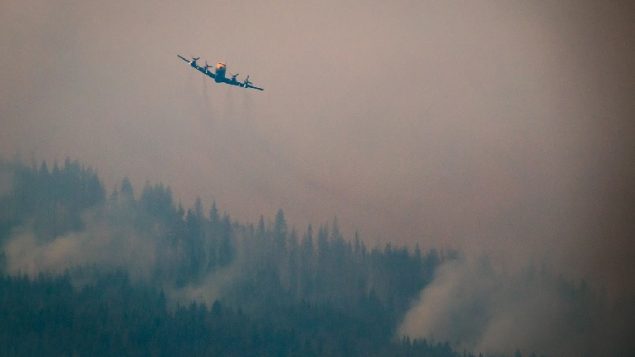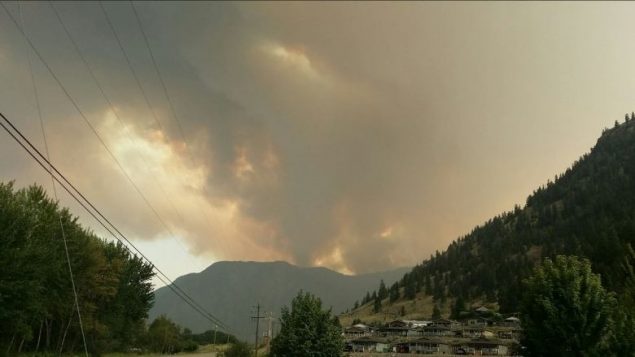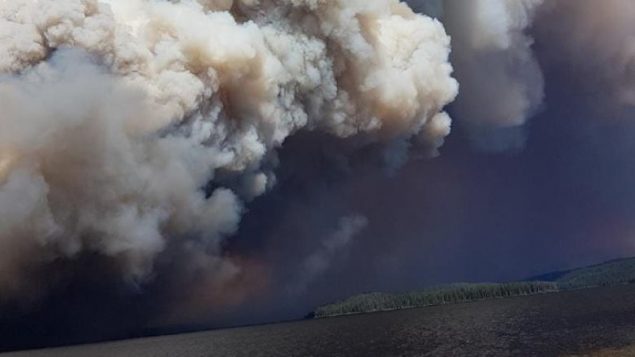As the many wildfires continue to ravage forests in west coast British Columbia, new health concerns are being raised about smoke pollution.
In addition, several airports in the province had to cancel flights as the thick smoke made it too difficult for pilots to see runways.
With over 500 separate fires, several communities have had their air quality rating on the scale listed from 1-to-10, listed as 10+ or very high risk

A large four-engine are tanker circles overhead before dropping retardant on the Shovel Lake wildfire near Fraser Lake, B.C. on Friday August 17, 2018. THE CANADIAN PRESS/Darryl Dyck)
The elderly, children, and anyone with respiratory problems are being told to stay indoors.
A fine particulate matter (PM2.5) monitoring system (PurpleAir) registered just under 300 to over 400 in several communities. A safe PM2.5 reading is between zero and 50.
Two major sporting triathlon events in B.C., one of which had attracted professional athletes from 19 countries, were cancelled due to the smoky conditions affecting air quality and visibility.
The smoke was even affecting sports events and outdoor activities as far away as Calgary, Alberta, about 700 kilometres to the east. Smoke from the B.C fires is also reaching as far east as Manitoba and northern Ontario

Smoke from the Snowy Mountain wildfire near Cawston and Keremeos, B.C. (Regional District of Okanagan-Similkameen Emergency Management Programme)
Meanwhile, researchers are noting that wildfires can have major long lasting effects on ecosystems far away from the fires themselves. While they say that wildfires have always existed, the fact that they seem to be far greater in intensity, continue to burn longer, and are more widespread is of concern.
Quoted in the Canadian Press, researcher Uldis Silins, a University of Alberta hydrologist studying the situation says, that since the beginning of this century, “Fire managers started to see wildfire behaviour that was at the extreme end or beyond anything that had been previously observed”.
The research shows that erosion through burned areas is far greater and has an increasing effect on water quality that can last for years.







For reasons beyond our control, and for an undetermined period of time, our comment section is now closed. However, our social networks remain open to your contributions.